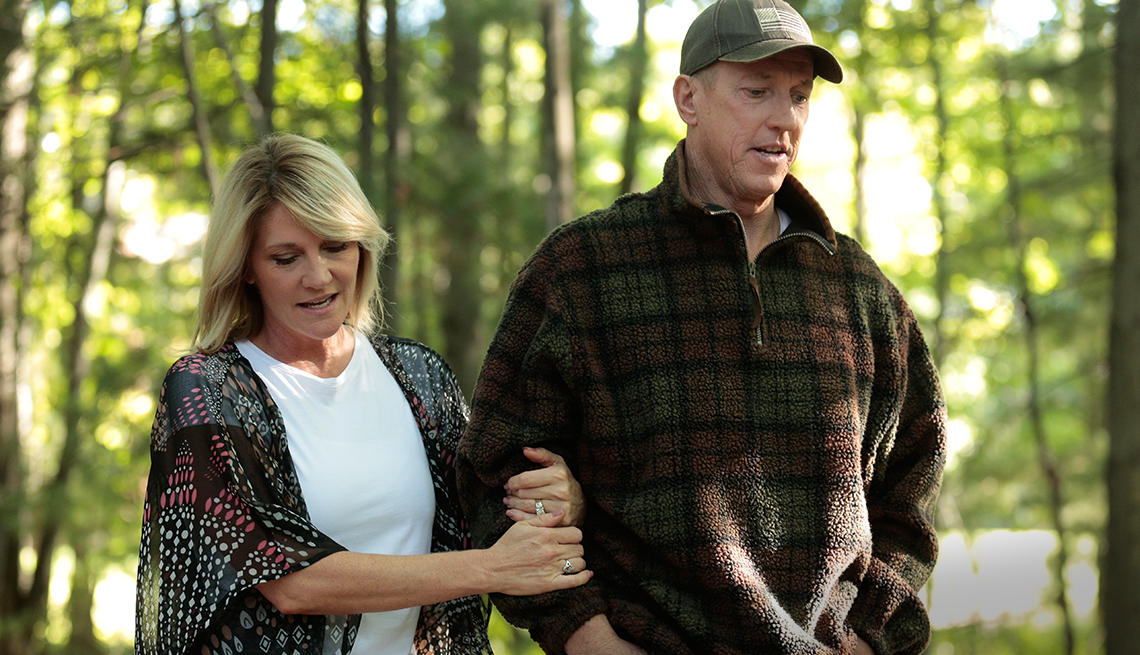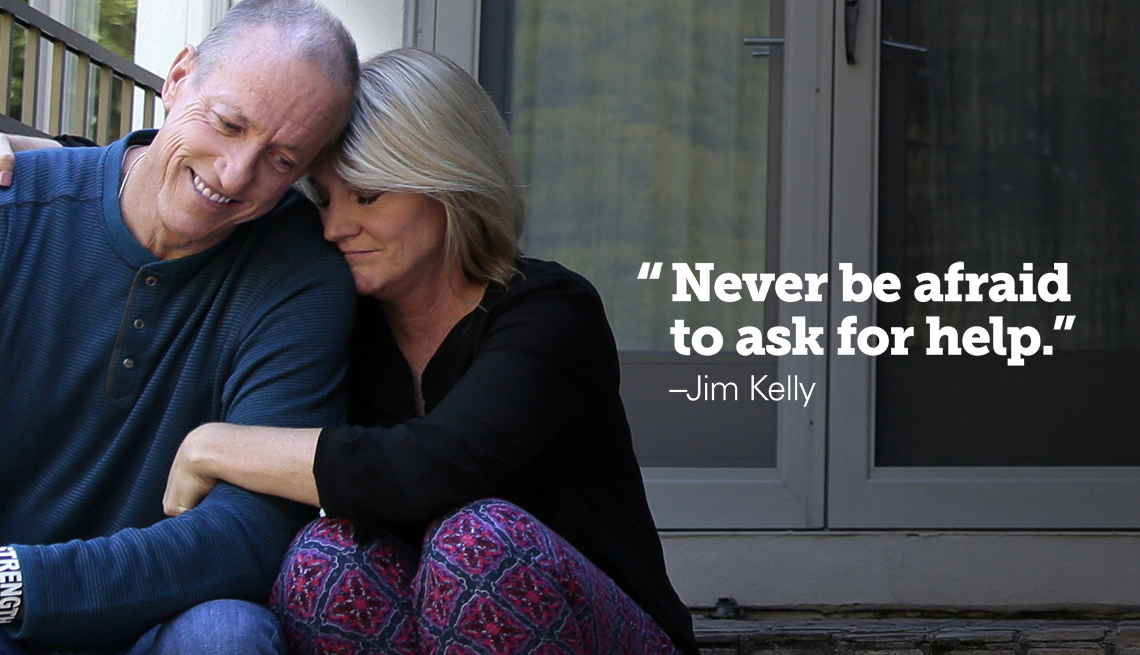Team Kelly: Taking on Cancer as a Family
Jim Kelly reveals how the support of his family helped him through his cancer journey
Jim Kelly, a decorated Professional Football Hall of Fame quarterback who led his team to four consecutive appearances at the big game and six divisional championships from 1988 to 1995, was diagnosed with squamous cell carcinoma in his upper jaw in 2013. Jim credits the four Fs (faith, family, friends and the fans), which he relied upon heavily, to help him through his cancer journey.
“As a football player, I was tough — on and off the field. To beat head and neck cancer, my mental and physical toughness were tested,” said Jim Kelly. “I know from personal experience that you can’t face a cancer diagnosis alone and that you need access to information and resources that can help you make a game plan to fight back.”
It wasn’t an easy time for Jim and his family, but they learned a lot about each other, and the people around them. Through this journey, Kelly developed tips he’d like to share in the hopes of making a difference today for someone who is fighting for their tomorrow.
Get Support
I was really lucky. I have a big family that was there for me, always reminding me to stay strong. It’s something I needed to hear, and it’s something I’d like others facing this battle to keep in mind. In the hospital, I met many people with cancer that just wanted someone to talk to. Even if you don’t have a large extended family like mine there are many other resources. There are support groups, therapists and social workers that can offer advice as well as be there to listen.
Build a Team
I credit part of my team’s success on the field to the trust we built with one another as well as, having open communication. We had each other’s back. My doctors and nurses were like that too. They not only explained every step in my journey, they also took the time to answer all the questions my family and I had.
Be Prepared
Just like I relied on my teammates to get ready for each game, I leaned on my wife and daughter to prepare for my doctor appointments. They would always have a pad ready for questions that popped into our heads. Also, on the day of an appointment, one of them would go with me and focus on taking notes to make sure all my questions were answered.
Keeping a Journal
My wife kept a journal and recorded each day of my cancer battle. She noted what treatments I had, how I was feeling and what I was able to accomplish that day. We used it to track my overall progress and see the improvements I had made over time. I’m sure writing in a journal might not be the easiest thing to keep up but I recommend it because it was really helpful for me. Without mine, I would have forgotten a lot of the things I needed to ask my doctors.
Be Tough
When I was first diagnosed our family motto, ‘Kelly Tough,’ meant being physically strong; you get knocked down, you get back up, you keep fighting. That’s a big part of it. But, it’s also about being mentally strong — keeping a positive frame of mind. My visiting family showed up smiling, not frowning or crying. That kept me going. During treatment, the toughest times for me were when all the visitors left and I was alone. I used those visits and the lingering good feelings I had to re-focus my attention on the days ahead.
Make a Difference
When I was in the hospital, I noticed a lot of people battling cancer alone without anyone by their side. It really affected me. I realized that maybe the reason I had this disease was to be there for others and bring awareness to this disease. I truly believe I can inspire and help people to have a positive outlook as they go through their journey. That’s where my motto, “Make a difference today for someone who is fighting for their tomorrow,” comes from. You can do it too! When it comes to beating head and neck cancer, we’re all teammates and in this together.




